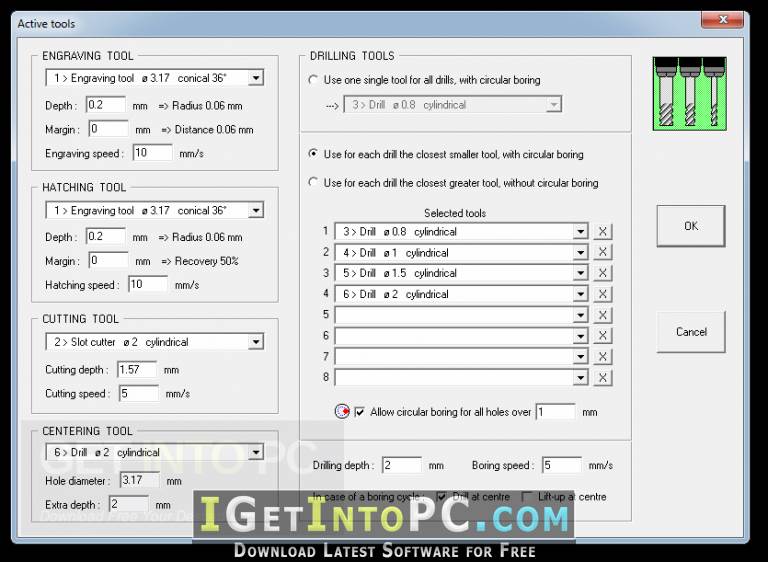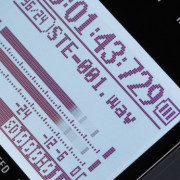Programmer
Содержание:
English[edit]
English Wikipedia has an article on:programmer
Wikipedia
Nounedit
programmer (plural )
- One who writes computer programs; a software developer.
- Synonym:
- One who decides which programs will be shown on a television station, or which songs will be played on a radio station.
- A device that installs or controls a software program in some other machine.
-
1999, Peter Spasov, Microcontroller technology, the 68HC11:
- The EPROM programmer burns the data into the EPROM chip. When programming is completed, remove the EPROM chip and plug it into the circuit …
-
2015, Brian Scaddan, Electrical Installation Work (page 201)
- This system comprises a boiler with its own thermostat to regulate the water temperature, a pump, a hot-water storage tank, a room thermostat and some form of timed programmer.
-
1999, Peter Spasov, Microcontroller technology, the 68HC11:
- (now rare) A short film feature as part of a longer film program.
Translationsedit
one who writes computer programs
|
|
one who decides which programs will be shown on a television station
|
|
a device that installs a software program into some other machine
|
|
- The translations below need to be checked and inserted above into the appropriate translation tables, removing any numbers. Numbers do not necessarily match those in definitions. See instructions at .
Translations to be checked
History
Ada Lovelace is considered by many to be the first computer programmer.
British countess and mathematician Ada Lovelace is often considered to be the first computer programmer, as she was the first to publish part of a program (specifically an algorithm) intended for implementation on Charles Babbage’s analytical engine, in October 1842. The algorithm was used to calculate Bernoulli numbers. Because Babbage’s machine was never completed as a functioning standard in Lovelace’s time, she unfortunately never had the opportunity to see the algorithm in action.
The first person to execute a program on a functioning, modern, electronic computer was the renowned computer scientist Konrad Zuse, in 1941.
Betty Jennings and Fran Bilas, part of the first ENIAC programming team
The ENIAC programming team, consisting of Kay McNulty, Betty Jennings, Betty Snyder, Marlyn Wescoff, Fran Bilas and Ruth Lichterman were the first regularly working programmers.
International Programmers’ Day is celebrated annually on 7 January. In 2009, the government of Russia decreed a professional annual holiday known as Programmers’ Day to be celebrated on 13 September (12 September in leap years). It had already been an unofficial holiday before that in many countries.
Software
The word software was used as early as 1953, but did not regularly appear in print until the 1960s. Before this time, computers were programmed either by customers or the few commercial computer manufacturers of the time, such as UNIVAC and IBM. The first company founded to specifically provide software products and services was the Computer Usage Company, in 1955.
The software industry expanded in the early 1960s, almost immediately after computers were first sold in mass-produced quantities. Universities, governments, and businesses created a demand for software. Many of these programs were written in-house by full-time staff programmers; some were distributed freely between users of a particular machine for no charge. And others were developed on a commercial basis. Other firms, such as Computer Sciences Corporation (founded in 1959) also started to grow. The computer/hardware manufacturers soon started bundling operating systems, system software and programming environments with their machines.[citation needed]
The industry expanded greatly with the rise of the personal computer («PC») in the mid-1970s, which brought computing to the average office worker. In the following years the PC also helped create a constantly-growing market for games, applications and utilities software.
In the early years of the 21st century, another successful business model has arisen for hosted software, called software-as-a-service, or SaaS. From the point of view of producers of some proprietary software, SaaS reduces the concerns about unauthorized copying, since it can only be accessed through the Web, and by definition, no client software is loaded onto the end user’s PC. SaaS is typically run out of the cloud.
Globalization
Market changes in the UK
According to BBC News, 17% of computer science students could not find work in their field 6 months after graduation in 2009 which was the highest rate of the university subjects surveyed while 0% of medical students were unemployed in the same survey. The UK category system does, however, class such degrees as information technology and game design as ‘computer science’, industries in which jobs can be extremely difficult to find, somewhat inflating the actual figure.
Market changes in the US
Computer programming, offshore outsourcing, and Foreign Worker Visas became a controversial topic after the crash of the dot-com bubble left many programmers without work or with lower wages. Programming was even mentioned in the 2004 US Presidential debate on the topic of offshore outsourcing.
Large companies claim there is a skills shortage with regard to programming talent. However, US programmers and unions counter that large companies are exaggerating their case in order to obtain cheaper programmers from developing countries and avoid previously employer-paid training using industry-specific technologies not covered in most accredited degree programs. Other reasons for employers claiming skill shortages is the result of their own cost-saving combining of several disparate skill sets previously held by several specialized programmers into fewer generalized multifaceted positions that are unlikely to have enough « qualified» candidates with the desired experience.
Enrollment in computer-related degrees in the US has dropped for years, especially for women, due to lack of general interests in science and mathematics and also out of an apparent fear that programming will be subject to the same pressures as manufacturing and agriculture careers. This situation has resulted in confusion about whether the US economy is entering a «post-information age» and the nature of US comparative advantages. Most academic institutions have an Institutional research office that keeps past statistics of degrees conferred which shows several dips and rises in Computer Science degrees over the past 30 years. The overall trend shows a slightly overall decline in growth (especially when compared to other STEM degree growth) since certain peaks of , , , and showing periods of flat growth or even declines., In addition, the U.S. Bureau of Labor Statistics Occupational Outlook 2016-26 is -7% (a decline in their words) for Computer Programmers because Computer programming can be done from anywhere in the world, so companies sometimes hire programmers in countries where wages are lower.
programme
ˈprəugrӕm (American) program noun
1. (a booklet or paper giving the details of) the planned events in an entertainment etc. program بَرْنامَج прогрaмa programa program das Programm program πρόγραμμαprograma (ees)kava فهرست ohjelma programmeתוכנייה योजना műsor, program program efnisskrá programma プログラム 프로그램 programa programma buku atur cara programmaprogramprogram پروګرام،كړنلار programa program программа program spored program program กำหนดการ program 節目單 програма جلسے کا تفصيلي پيش نامہ chương trình 节目单
2. a plan or scheme. program خِطَّه، بَرْنامَج план programa program der Plan plan; oversigt πρόγραμμαprograma kava برنامه suunnitelma programmeתוכנית कार्यक्रम tervezet rencana áætlun programma 計画 계획 planas programma; plāns rancangan programma plan, program; dagsordenprogram كړنلاره،خپرونه،پروګرام programa program план program načrt program program, plan แผนงาน program 計劃 програма, план منصوبہ kế hoạch 计划
3. (British and American usually ˈprogram) a set of data, instructions etc put into a computer. program بَرنامَج حاسوب програма programa program das Programm program πρόγραμμα Η/Υ programa programm برنامه ohjelma programmeתוכנה कम्प्यूटर कार्य सूची program program forrit programma コンピューター・プログラム (컴퓨터) 프로그램 programa programma program programmaprogramprogram خپرونه،پروګرام programa program программа program program program program ชุดคำสั่งที่ใช้ควบคุมเครื่องอิเล็กทรอนิค program 程序 програма مواد اور ہدايات کا مجموعہ chương trình 程序
ˈprogram verb – present participle ˈprogramming (American also ˈprograming): past tense, past participle ˈprogrammed (American also ˈprogramed) – to give information, instructions etc to (a machine, especially a computer, so that it can do a particular job). programmeer يُبَرْمِج програмирам programar programovat programmieren programmere προγραμματίζωprogramar programmeerima برنامه دادن به ohjelmoida programmer לְתַכנֵת कार्यक्रम बनाना (be)programoz memrogram forrita programmare プログラムを入力する 프로그램을 짜넣다 programuoti programmēt memprogramkan programmerenprogrammere programować خپرونه programar a programa программировать programovať programirati programirati programmera เขียนชุดคำสั่ง programlamak 設計電腦程式 програмувати اطلاع دينا، ہدايات دينا lập trình 为(计算机)编制程序
ˈprogrammer noun
French[edit]
Verbedit
programmer
- to
- () to , to write program code
Conjugationedit
Conjugation of programmer (see also Appendix:French verbs)
| infinitive | simple | programmer | |||||
|---|---|---|---|---|---|---|---|
| compound | avoir + past participle | ||||||
| present participle or gerund1 | simple | /pʁɔ.ɡʁa.mɑ̃/ | |||||
| compound | ayant + past participle | ||||||
| past participle | /pʁɔ.ɡʁa.me/ | ||||||
| singular | plural | ||||||
| first | second | third | first | second | third | ||
| indicative | je (j’) | tu | il, elle | nous | vous | ils, elles | |
| (simpletenses) | present | /pʁɔ.ɡʁam/ | /pʁɔ.ɡʁam/ | /pʁɔ.ɡʁam/ | /pʁɔ.ɡʁa.mɔ̃/ | /pʁɔ.ɡʁa.me/ | /pʁɔ.ɡʁam/ |
| imperfect | /pʁɔ.ɡʁa.mɛ/ | /pʁɔ.ɡʁa.mɛ/ | /pʁɔ.ɡʁa.mɛ/ | /pʁɔ.ɡʁa.mjɔ̃/ | /pʁɔ.ɡʁa.mje/ | /pʁɔ.ɡʁa.mɛ/ | |
| past historic2 | /pʁɔ.ɡʁa.me/ | /pʁɔ.ɡʁa.ma/ | /pʁɔ.ɡʁa.ma/ | /pʁɔ.ɡʁa.mam/ | /pʁɔ.ɡʁa.mat/ | /pʁɔ.ɡʁa.mɛʁ/ | |
| future | /pʁɔ.ɡʁam.ʁe/ | /pʁɔ.ɡʁam.ʁa/ | /pʁɔ.ɡʁam.ʁa/ | /pʁɔ.ɡʁam.ʁɔ̃/ | /pʁɔ.ɡʁam.ʁe/ | /pʁɔ.ɡʁam.ʁɔ̃/ | |
| conditional | /pʁɔ.ɡʁam.ʁɛ/ | /pʁɔ.ɡʁam.ʁɛ/ | /pʁɔ.ɡʁam.ʁɛ/ | /pʁɔ.ɡʁa.mə.ʁjɔ̃/ | /pʁɔ.ɡʁa.mə.ʁje/ | /pʁɔ.ɡʁam.ʁɛ/ | |
| (compoundtenses) | present perfect | present indicative of avoir + past participle | |||||
| pluperfect | imperfect indicative of avoir + past participle | ||||||
| past anterior2 | past historic of avoir + past participle | ||||||
| future perfect | future of avoir + past participle | ||||||
| conditional perfect | conditional of avoir + past participle | ||||||
| subjunctive | que je (j’) | que tu | qu’il, qu’elle | que nous | que vous | qu’ils, qu’elles | |
| (simpletenses) | present | /pʁɔ.ɡʁam/ | /pʁɔ.ɡʁam/ | /pʁɔ.ɡʁam/ | /pʁɔ.ɡʁa.mjɔ̃/ | /pʁɔ.ɡʁa.mje/ | /pʁɔ.ɡʁam/ |
| imperfect2 | /pʁɔ.ɡʁa.mas/ | /pʁɔ.ɡʁa.mas/ | /pʁɔ.ɡʁa.ma/ | /pʁɔ.ɡʁa.ma.sjɔ̃/ | /pʁɔ.ɡʁa.ma.sje/ | /pʁɔ.ɡʁa.mas/ | |
| (compoundtenses) | past | present subjunctive of avoir + past participle | |||||
| pluperfect2 | imperfect subjunctive of avoir + past participle | ||||||
| imperative | – |
|
– |
|
|
– | |
| simple | — | /pʁɔ.ɡʁam/ | — | /pʁɔ.ɡʁa.mɔ̃/ | /pʁɔ.ɡʁa.me/ | — | |
| compound | — | simple imperative of avoir + past participle | — | simple imperative of avoir + past participle | simple imperative of avoir + past participle | — | |
| 1 The French gerund is only usable with preposition en. | |||||||
| 2 In less formal writing or speech, the past historic, past anterior, imperfect subjunctive and pluperfect subjunctive tenses may be found to have been replaced with the indicative present perfect, indicative pluperfect, present subjunctive and past subjunctive tenses respectively (Christopher Kendris , Master the Basics: French, pp. , , , ). |
Related termsedit
“programmer” in Trésor de la langue française informatisé (The Digitized Treasury of the French Language).













